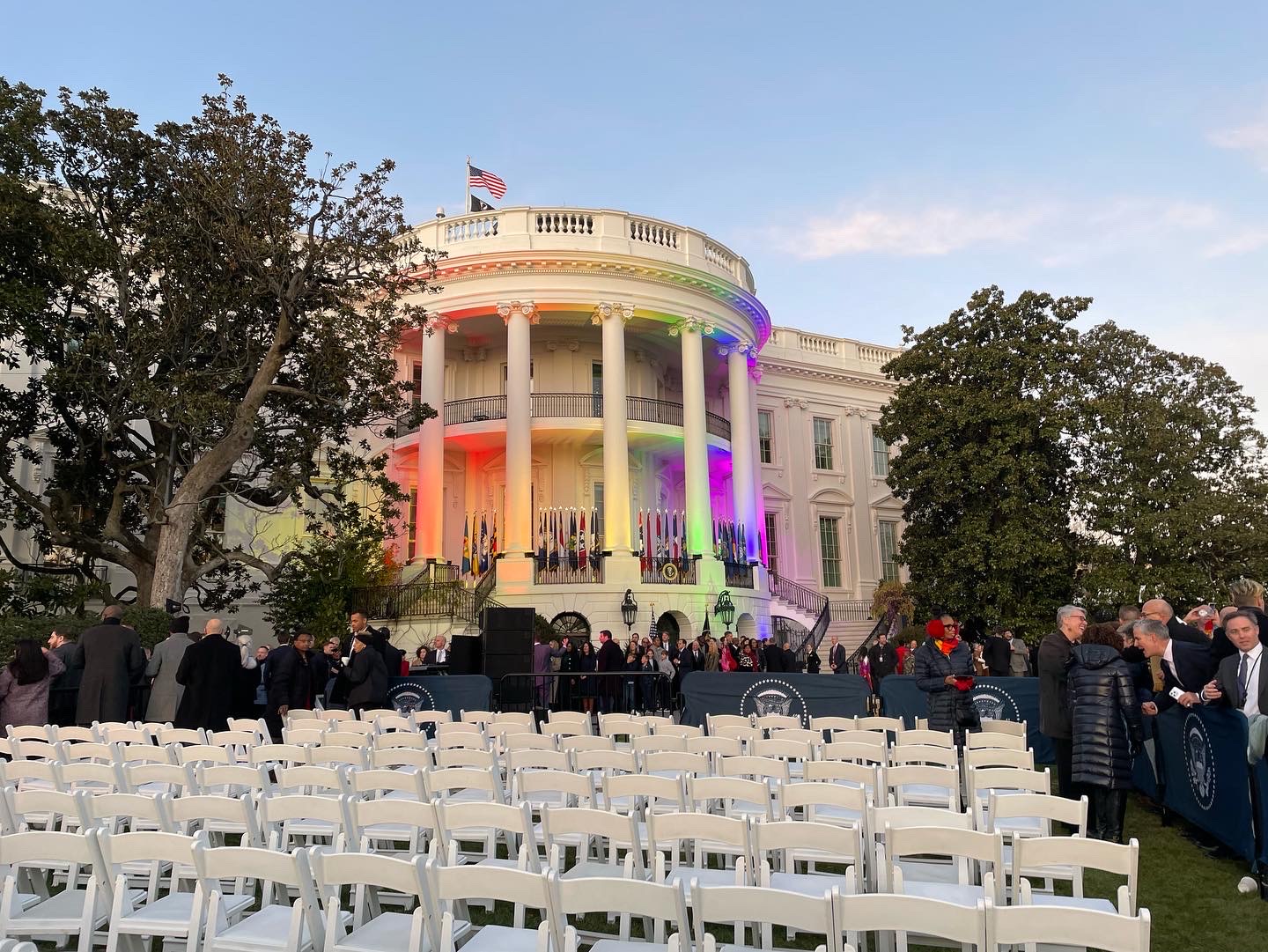Yesterday, at the invitation of President Joe Biden and First Lady Jill Biden, I attended the signing of the Respect for Marriage Act at the White House. The passage of the act, a milestone civil rights bill that extends legal protections to same-sex and interracial couples in all 50 states, was feted with the Washington equivalent of a block party, featuring thousands of attendees and musical performances by Sam Smith, Cyndi Lauper and the Gay Men’s Chorus of Washington.
In his remarks to the crowd, a vast assemblage of LGBTQ advocates, President Biden defined marriage as a “simple proposition: Who do you love and will you be loyal to that person you love? It’s not more complicated than that.”
The Respect for Marriage Act, which enjoyed bipartisan support in the House and Senate, has been the subject of sustained and robust debate among policymakers, gay rights activists and church leaders. In a letter published last month, members of the U.S. Conference of Catholic Bishops told Congress that passing the “needless” bill would entail a “rejection of timeless truths about marriage” and “betray … the fundamental right of religious liberty.”
According to the National Catholic Reporter, the bishops’ conference is historically reluctant to support legislation guaranteeing rights to LGBTQ Americans, viewing those bills as a grave threat to religious freedom. The conference publicly criticized the Violence Against Women Act, in 2013, and worked to prevent the passage of the National Suicide Hotline Designation Act, in 2020.
While impassioned discourse is needed for a functioning democracy, much of this ongoing debate completely fails on a pastoral level.
Yet, remarks made by the bishops’ conference on LGBTQ topics are not necessarily in step with the majority of the faithful. A Gallup poll found that most American Catholic respondents, between 2016 and 2020, supported same-sex marriage. “U.S. Catholics’ support for gay marriage has consistently exceeded the national average by five or more percentage points since the 2000s,” reads a Gallup report.
Despite pressure from Catholic bishops and conservative groups like the Heritage Foundation, which denounced the bill as “radical,” Congress was undeterred. Earlier this month, House Speaker Nancy Pelosi voiced unequivocal support for the bill, stating that it “combat[s] bigoted extremism” and acknowledges “the dignity, beauty and divinity … in every person.” The bill easily won favor in the House, with a 258-169 vote, and passed by a considerable margin, 61-36, in the Senate.
While impassioned discourse is needed for a functioning democracy, much of this ongoing debate completely fails on a pastoral level. In focusing its energies on philosophical disagreements, theological contentions and policy concerns, some church leaders have neglected one of the most basic Christian imperatives: to recognize the God-given humanity of LGBTQ people and to stand with the marginalized.
It does us good to remember that Christ’s merciful interactions with those on the outskirts of his society—the leper, the tax collector, the “sinful woman”—enraged and disgusted the Pharisees. (“Going to the margins” is also a key pillar of Jesuit spirituality, and something Pope Francis has emphasized in his call for the church to go to the peripheries.)
The guiding principle and first impulse of pastoral ministry here is to recognize the LGBTQ person as neighbor, a flesh-and-blood creation not easily defined by concepts and policies. In its fervent opposition to the Respect for Marriage Act, on the grounds that the state is re-defining marriage or mounting a legislative assault against religious liberty, the church has reduced the multifaceted lives of LGBTQ persons to either political dilemmas that must be resolved or theological ideas that must be defended.
The guiding principle and first impulse of pastoral ministry here is to recognize the LGBTQ person as neighbor, a flesh-and-blood creation not easily defined by concepts and policies.
Treating an oft-maligned community as a debate only furthers their marginalization in the church—and fosters suspicion and division in the pews. As James Martin, S.J., once said to me during a discussion about transgender Catholics: “They’re not ideas, they’re people.”
This is not to say that moral debates are unimportant to Christian life. The development of doctrine, as Saint John Henry Newman called it, exhibits the church’s rich intellectual tradition and represents the sum total of religious scholarship over two millennia. What we believe and why we believe it is part of the bedrock of our faith.
But the human element is too often overlooked, leading some Catholics to reject LGBTQ people because of harmful theological opinions when Christ calls us to embrace gay Catholics as a community of believers.
In short, I did not visit the White House yesterday simply to throw my support behind a bill. I went to stand with LGBTQ people when spiritual leaders have wounded them.




